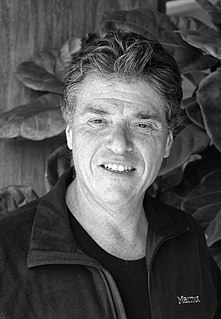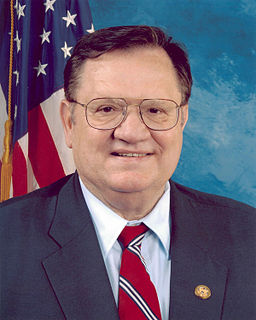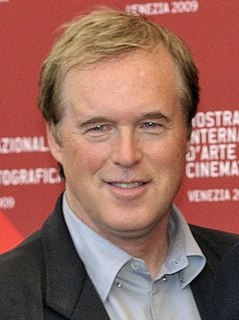A Quote by Helen Keller
I had once believed that we were all masters of our fate--that we could mold our lives into any form we pleased... I had overcome deafness and blindness sufficiently to be happy, and I supposed that anyone could come out victorious if he threw himself valiantly into life's struggle. But as I went more and more about the country I learned that I had spoken with assurance on a subject I knew little about... I learned that the power to rise in the world is not within the reach of everyone.
Quote Topics
About
Any
Anyone
Assurance
Be Happy
Believed
Blindness
Come
Could
Country
Deafness
Everyone
Fate
Form
Had
Happy
Himself
Knew
Learned
Life
Little
Lives
Masters
Mold
More
More And More
Once
Our
Our Lives
Out
Overcome
Pleased
Power
Reach
Rise
Spoken
Struggle
Subject
Supposed
Threw
Victorious
Were
Within
World
Related Quotes
As a child, he had hardened his heart and learned to take their punches. He had learned to spit back and take down anyone who cast a jaundiced eye or who made a comment about either him, his mother, or his sister. He’d told himself that he didn’t need anyone’s love or caring. And so he had learned to live like a feral animal, always ready to strike out when someone tried to touch him.
How did it happen that now he could see everything so clearly. Something had given him leave to live in the present. Not once in his entire life had he come to rest in the quiet center of himself but had forever cast himself from some dark past he could not remember to a future that did not exist. Not once had he been present for his life. So his life had passed like a dream. Is it possible for people to miss their lives the way one can miss a plane?
I thank God that I became addicted to pain pills, because the process of going through rehab taught me more about myself than I had ever known. I wish I would have learned what I learned about myself I learned in rehab, going through life. You know, we're all raised to be loved. We care about what other people think of us, and sometimes to our detriment we let feedback and the opinions of others shape our own self-image. I was guilty of that, too. But in my professional life, I had mastered it. I didn't care what the critics said.
When I had finished the book I knew that no matter what Scott did, nor how he behaved, I must know it was like a sickness and be of any help I could to him and try to be a good friend. He had many good, good friends, more than anyone I knew. But I enlisted as one more, whether I could be of any use to him or not. If he could write a book as fine as The Great Gatsby I was sure that he could write an even better one. I did not know Zelda yet, and so I did not know the terrible odds that were against him. But we were to find them out soon enough.
We don't live in the old world. But I don't want everyone to know what I've done. We all know every kind of example we could throw out there. The world we see online is very spiteful, we all know about people who have had bad stories thrown at them. If we were more generous I might be more happy about the reputation economy.
We fitted together like the two halves of an oyster-shell. I was Narcissus, embracing the pond in which I was about to drown. However much we had to hide our love, however guarded we had to be about our pleasure, I could not long be miserable about a thing so very sweet. Nor, in my gladness, could I quite believe that anybody would be anything but happy for me if only they knew.
He believed that he must, that he could and would recover the good things, the happy things, the easy tranquil things of life. He had made mistakes, but he could overlook these. He had been a fool, but that could be forgiven. The time wasted--must be relinquished. What else could one do about it? Things were too complex, but they might be reduced to simplicity again. Recovery was possible.
The kiss was the definition of perfect. True, it lacked the heat, the passion, the breathlessness of the living-world kiss she had given Milos, but this had something greater. More than a flash of fire, it had an unbreakable, perhaps eternal bond of connection. Mikey had transformed back into himself by the end of the kiss, and the moment their lips parted he knew, as he should have known long, long ago, that no one - not Milos, not another Afterlight, not anyone in any world - could ever come between him and Allie, from now until the day they met their maker.
he'd once believed that the answer lay somehow in the music he created, he suspected now that He'd been mistaken. The more he thought about it, the more he'd come to realize that for him, music had always been a movement away from reality rather than a means of living in it more deeply. .. he now knew that burying himself in music had less to do with God than a selfish desire to escape.
We read our mail and counted up our missions In bombers named for girls, we burned The cities we had learned about in school Till our lives wore out; our bodies lay among The people we had killed and never seen. When we lasted long enough they gave us medals; When we died they said, "Our casualties were low." They said, "Here are the maps"; we burned the cities.
Our words had to be circumspect. We could not write anything too negative about our circumstances. This was tricky, since the very form of a married woman's letter needed to include the usual complaints -- that we were pathetic, powerless, worked to the bone, homesick, and sad. We were supposed to speak directly about our feelings without appearing ungrateful, no-account, or unfilial.
The important thing is not so much that every child should be taught, as that every child should have the opportunity of teaching itself. What does it matter if the pupil know a little more or a little less? A boy who leaves school knowing much, but hating his lessons, will soon have forgotten all he ever learned; while another who had acquired a thirst for knowledge, even if he had learned little, would soon teach himself more than the first ever knew.
It's wonderful and reassuring to see 'Hichki' doing so well. When I got to know the subject and signed the film, I knew that we were working on an important and sensitive subject. I knew that we had a winner at hand. But as artists, we are always a little anxious about our work, that's just in our DNA, I guess.



































